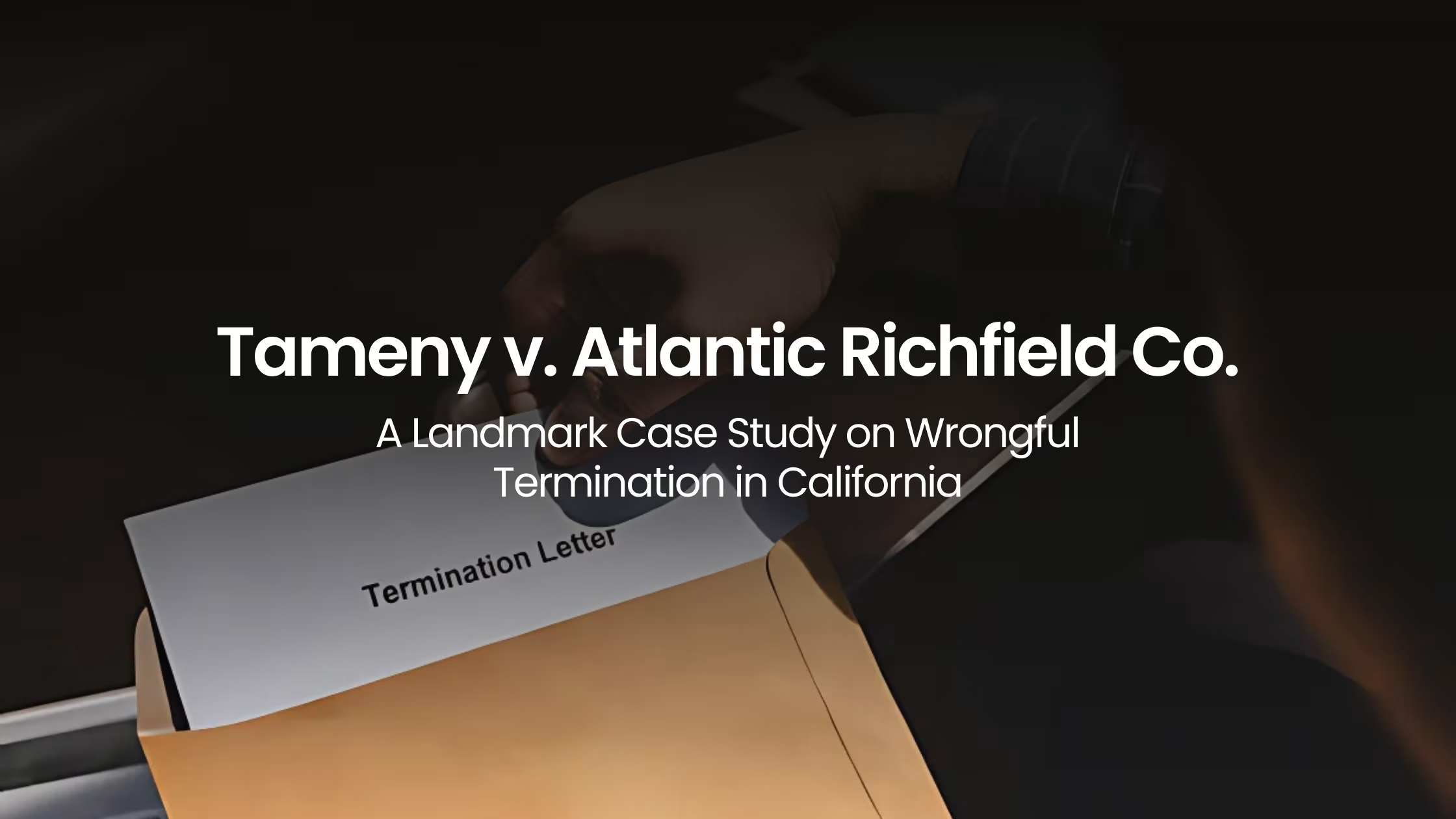Wrongful termination is not just a workplace issue, it’s a legal matter that can have life-changing consequences. In California, the law protects employees who are fired for reasons that violate public policy. One of the most influential cases in this area is Tameny v. Atlantic Richfield Co., a groundbreaking 1980 decision by the California Supreme Court that set a precedent for protecting workers from retaliation when they refuse to engage in illegal activities.
This case study dives deep into the facts, legal implications, and lasting impact of Tameny v. Atlantic Richfield Co., providing essential knowledge for anyone facing or fighting a wrongful termination.
The Background: Who Was Donald Tameny?
Donald Tameny was a long-time employee at Atlantic Richfield Co. (ARCO), a major oil and gas company. As a sales representative, Tameny was asked by his employer to participate in activities that would violate federal antitrust laws specifically, price-fixing. When he refused, he was subsequently terminated from his job.
Tameny sued ARCO for wrongful termination, arguing that his dismissal was in retaliation for his refusal to break the law. This case raised a critical question: Can an employee sue for wrongful termination if they are fired for refusing to participate in illegal conduct?
Legal Argument: Establishing a Public Policy Tort
Before this case, California courts primarily limited wrongful termination claims to breaches of written or implied contracts. Tameny's legal team argued that firing an employee for refusing to violate antitrust laws goes against public policy and should be actionable even without a contract.
The California Supreme Court agreed. It ruled in favor of Tameny, holding that an employer cannot terminate an employee for reasons that contravene fundamental public policy.
Key Legal Principles Established:
The Broader Impact on Employment Law
The Tameny ruling became the foundation for what is now known as "Tameny actions," a shorthand term used in legal circles for wrongful termination in violation of public policy. Since then, California courts have expanded this doctrine to cover situations involving:
- Termination due to reporting OSHA violations
- Refusal to commit fraud
- Whistleblowing on environmental or workplace safety violations
This case reshaped California's employment landscape by reinforcing that loyalty to the law must come before loyalty to an employer.
Real-World Relevance: How It Affects You Today
Let’s be clear: if you were fired for refusing to participate in unethical or illegal activity, you may have legal grounds to sue for wrongful termination.
Here’s how Tameny’s legacy applies to modern-day employment:
These protections exist because of the brave stand taken by individuals like Donald Tameny.
Attorney Perspective: Why This Case Still Matters
As a California-based law firm specializing in employment law, we frequently reference the Tameny decision when fighting for our clients. At Ladva Law Firm, we understand the emotional, financial, and professional toll that wrongful termination can bring.
We often hear:
- "I didn’t do anything wrong."
- "They wanted me to lie, and I refused."
- "Now I’m out of a job and a paycheck."
Our message is this: You have rights. And we’re here to help you defend them.
Case Study Recap: Why Tameny Matters
Conclusion: Know Your Rights and Take Action
The story of Donald Tameny is not just a legal milestone; it’s a reminder of the power individuals have when they stand up for what is right. If you believe you were wrongfully terminated, you don’t have to face it alone.
Were you terminated for refusing to break the law or speak up about misconduct? Let our experienced team of wrongful termination lawyers at Ladva Law Firm evaluate your case. We’ve helped hundreds of employees just like you fight back and win. Schedule your free consultation today.






